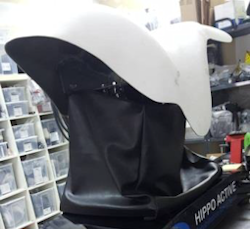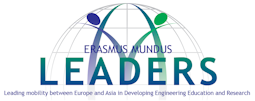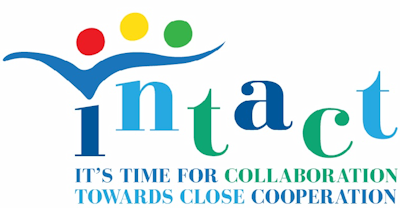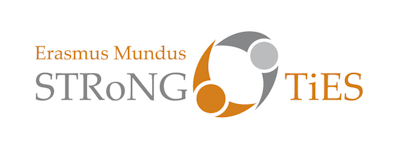Assistant Professor
Frederick University, School of Engineering

I am a member of the Computer Science and Engineering Department at Frederick University Cyprus. I received my BSc Hons. in Computer Science and Cybernetics, and MSc (Dist.) in Engineering and Information Sciences from the University of Reading, UK in 1999 and 2001 respectively. I received my Ph.D. degree from the School of Engineering and Mathematical Sciences at City University London, U.K in 2014. I have actively participated in designing and developing various information systems for desktop and mobile platforms for different research programmes funded by the European Union and the Research Promotion Foundation.
My current research interests include the investigation of technologies, and architectures for Big Data systems and platforms in terms of the underlying operating systems, and database systems. Moreover, his research interests include Big Data Analytics in Mobile and Cloud Computing Environments, for obtaining insight for various data analysis projects.
Frederick University, School of Engineering
Frederick University, School of Engineering
Frederick Institute of Technology, Department of Computer Science
Ph.D. in Information Engineering
City University, School of Engineering and Mathematical Sciences
MSc in Engineering and Information Sciences
University of Reading
BSc (Hons) Computer Science and Cybernetics
University of Reading








My research activities are primarily driven by computational science for the design and implementation of algorithms for solving complex problems and structures. In specific, during my PhD thesis I have defined and developed the Finite Difference Time Domain (FDTD) method in the field of computational electromagnetics. As part of my post-doc/academic research activities I have applied algorithmic driven computational science in my two parallel fields of study: electromagnetics and information engineering.
Further to my research related to my Doctoral studies, my aim is to engage and to expand my research within my academic domain (Information Engineering), as well as to promote my engagement in research within the Computer Science and Engineering Department and in collaboration with colleagues from other academic domains. To address this challenge, I applied knowledge from my academic domain background and experience to formulate and pursue research topics and research proposals for funding. My current research interests include the investigation, integration and application of technologies, and architectures for interactive systems, RDMBS, DDBMS, NoSQL, big data systems and platforms in terms of the underlying operating systems, and database systems. Moreover, my research interests include big data analytics in mobile and cloud Computing Environments for obtaining insight for various data analysis projects. I am also interested in the integration of Internet of Things (IoT) devices in service-oriented architectures for the dynamic management of IoT devices and for supporting the development of distributed applications using RESTful/Web APIs.

The specific objectives of the project are to promote public awareness of the targeted audience, towards the need for the protection of Natura 2000 network, increase awareness on natural values for which the Troodos National Forest Park was included in the Natura 2000 Network, and to change negative attitudes of Cyprus inhabitants, regarding Natura 2000 network and ecosystem services, using various means (rural workshops, awareness/media campaign, and dissemination material).
Moreover, the projeect aims to spread knowledge about the natural values and ecosystem services provided by Natura 2000 network to professional target groups (policy implementers), create and provide toolsets (Mobile Apps, guide, documentary, etc.) regarding the Natura 2000 network, the conservation of natural values and the provision of ecosystem services in order to be forwarded to the public and be used more widely in a national and international context.

Hippoactive aims to perform a smooth six-degree freedom movement -based on the Gough-Stewart Platform, allowing a floating body to move freely on the three axes of movement x, y, z horizontally, vertically and laterally - not only linearly but also rotationally (pitch, roll and yaw), as well as to simulate the horse's oscillations.
The Hippoactive Gough-Stewart Platform aims to allow therapists to have control over the movements of the simulator as appropriate, and to enable therapists to make measurements based on specific parameters, to analyze the results, to create personalized patient rehabilitation programs according to the age and needs of each patient and to have the best possible results. To also offer the possibility of upgrading and increasing operating programs, as well as to allow the rider to have better control over the movements of the simulator
Moreover, the platofrom aims to simulate the horse's skin and temperature in the seat area, and to provide the opportunity of contact to the user, through a screen that will give the sense of an interactive game –virtual reality- as the user will be able to feel that he/she is in a real environment with various options in relation to the movement of the horse. This objective will be achieved through a display that will depict the accurate position of the horse during operation, as motors will be connected to an electronic board which will guide the user.

EM LEADERS is a scholarship programme for students and researchers/professionals on Undergraduate, Masters, Doctoral, Post-Doctoral as well as Academic and Administrative Staff members from South-East Asia to European Union and vice versa.
EM LEADERS is offering mobility opportunities of high quality students, emerging, early stage and established researchers and administrators. The main areas of interest – Electrical, Electronics engineering and Information and Communication Technologies, Photonics, Biomedical Engineering, Computer Engineering, Power systems and energy, Informatics, Communication Engineering and Microwaves.

EM INTACT is a scholarship programme for students and researchers/professionals on Bachelor, Masters, Doctoral, Post-Doctoral as well as Academic and Administrative Staff members from Regional Asia to European Union and vice versa.
The main areas of interest are the STEM Disciplines (Science, Technology, Engineering and Mathematics) but with specific priorities for researchers in Electrical & Electronic Engineering; Information and Communication Technology; Photonics; Biomedical Engineering; Computer Engineering; Energy and Power Systems; Informatics; Telecommunications; Mathematics; Physics; Civil Engineering; Soil and Water Sciences.

StrongTIES offers an opportunity for Master and Doctoral students as well as academic staff of Universitas Airlangga to study in several European institutions. This grant will cover living expenses, return tickets, insurance, and tuition fee. The fields of study offered for this scholarship are Electrical, Electronics engineering and Information and Communication Technologies, Photonics, Biomedical Engineering, Computer Engineering, Power systems and energy, Informatics, Communication Engineering and Microwaves.

The basic objectives of this project are fundamental studies on the interaction between femtosecond laser pulses and glassy materials to realize nano-scale optical structures/waveguides and micro-fluidic devices on the same substrate or basic optical platform, thereby producing “micro-fluidic chips”. The fabrication of intricate microstructures and channels within the bulk volume or surface of optically transparent glassy materials is widely recognized as an important development in the innovation of advanced components in the two apparently distinct areas of photonics and fluidics, with a direct impact to bio-photonics. However, due to incompatibilities in any manufacturing processes, it is difficult to mix these two functionalities. The processing of glass with femtosecond pulses is a versatile technique, which offers unique capabilities for the fabrication of micro-devices that integrate on a monolithic substrate micro-optics with micro-fluidics.

Country of Origin Information (COI) refers to information on countries from which asylum seekers originate relevant for decision-makers in the field of asylum. The quality and accuracy of COI can thus play a determining role in achieving the aim of the Common European Asylum System that similar cases should receive similar outcomes across the EU.
At the moment my research lies at the intersection between my doctoral studies related research and my academic domain related research. My future research plans aim to focus more on the academic related research, and in particular on the investigation, integration and application of technologies, and architectures for big data systems and platforms in terms of the underlying operating systems, and database systems, as well as big data analytics in mobile and cloud computing environments for obtaining insight.
This page is dedicated to lecture notes I post regularly on this website regarding subjects I lecture, and I think it would be useful to have some notes. The format of the notes is either in MS Word, Powerpoint, or PDF files.
The subjects listed below the taught this semester at Frederick University by yours truly. Most of them concern the field of Computer Science or Computer Engineering. I hope you find the information useful!
The aim of this subject is to introduce students to the fundamentals of Systems Analysis and Design. Students are introduced to the basics surrounding the activities of a system analyst and introduces the three main methodologies of the systems development life cycle (SDLC), agile approaches, and object-oriented analysis. The subject emphasizes the use of systematic and structured methodologies for performing information requirements analysis. Students are introduced to the details of the analysis process and data flows as well as structured and semi-structured decisions. The subject concludes with the essentials of system design.
The course considers the concepts of modern database systems. Teaches the theory and application of advanced database systems, the supporting mechanisms of the DBMS, and the underlying theory of the database transactions in terms of Atomicity, Consistency, Isolation, and Durability (ACID). Implements practical applications of modern database systems, including the Model-View-Controller (MVC) architecture. Discusses alternative database systems, such as distributed databases and introduces Big Data.
The course considers the concepts of modern operating systems. Teaches abstracts of processes, CPU scheduling, memory management, file systems, and security. Implements applications based on UNIX (commands, syntax, programming). Discusses alternative operating systems, such as Solaris, Linux, Windows 7, 8, and 10 with practical exercises on Linux OS and Windows.
The course aims to introduce students to the social implications of computing and networked communication. Evaluation and making of ethical arguments. Community values and laws. The nature and role of a professional in public policy. Codes of ethics widely used (IEEE, ACM, SE, AITP, etc). Dealing with harassment and discrimination. 'Acceptable use policies' for computer usage in organisations. Intellectual property, copyrights, patents trade secrets and software piracy. Privacy of information and freedom of expression in cyberspace. Public speaking, delivery and use of visual aids. Interactive speaking, supporting ideas, arguments and answering questions effectively.
The module aims to provide students with a thorough introduction to designing and using database systems within the context of data representation, and in particular the relational model. Students are introduced to both theoretical elements of data analysis including relational algebra, entity relationship modelling, normalization and integrity issues as well as practical aspects such as database modelling and implementation, SQL statements and system performance.
The course introduces Computer Science and Engineering students to UNIX fundamentals of an Operating System and expands knowledge using UNIX variants command line tools, shells, and extends C programming language to design and implement programs with interprocess communication using the network interface. The role of the C programming language as the language used for developing the UNIX operating system is emphasised through practical work carried out.
The aim of the course is to help students to develop a basic understanding computer systems and models used in computer graphics. The course expands knowledge of computer programming and programming using OpenGL. Moreover the course aims to introduce students to input and interaction in Windowing Systems using OpenGL. Students will be able to implement using OpenGL geometric objects and apply object transformations. The course will also explain viewing (camera points), and shading in computer graphics, as well as applying texture mapping and advanced computer graphics techniques. Students will have the opportunity to implement and develop computer graphics video graphics video clips.
The course considers the concepts of modern database systems. Teaches the theory and application of advanced database systems, the supporting mechanisms of the DBMS, and the underlying theory of the database transactions in terms of Atomicity, Consistency, Isolation, and Durability (ACID). Implements practical applications of modern database systems, including the Model-View-Controller (MVC) architecture. Discusses alternative database systems, such as distributed databases and introduces Big Data.
The aim of the this course is to provide students with a holistic approach to Big Data, the data model for Big Data, and examine the nature and requirements of a Big Data components, as well as Big Data as a platform. The course will introduce students to Data Mining and focus on intelligent data analysis. The major principles, terminology, problem types and research topics of Data Mining are addressed. The course will examine the main ideas behind some of the leading Machine Learning techniques being used in practical Data Mining and the issues that should be considered in their application. In addition, the course will consist of hands-on approach on Big data and experimentation on real life problems and data to promote the development of critical thinking on the proper application of Data Mining techniques.
The course aims to introduce computer engineering students to the more practical and technical aspects of computer engineering with the opportunity of spending some time in outside the university environment to practice and apply existing knowledge of computer engineering.
The subject aims to guide students into writing different reports by following appropriate styles. Also the subject provides information to students to decide and use different methodologies that will enable them to find and combine information on a particular area. Furthermore students will be able to develop different technical reports and academic papers of professional standards.
Please find here my contact information: